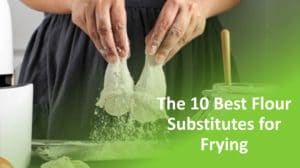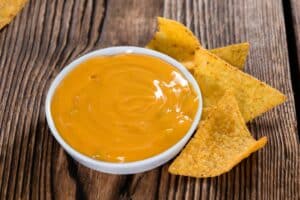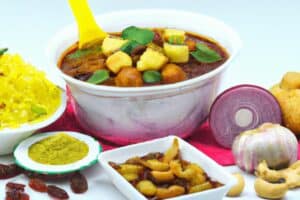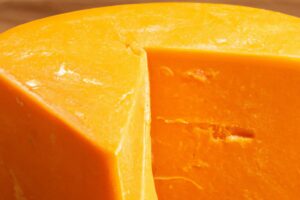Potato flour is a useful ingredient in baking and for thickening sauces. It is an especially beneficial option for those who are gluten-free and still want to enjoy dishes that call for flour. But what should you do if you run out of potato flour?
You can always use plain flour in place of potato flour.
These two ingredients serve the same role in cooking. That means that for most recipes that call for potato flour, all-purpose flour will work as well. Bread making recipes is where standard flour is the best potato flour substitute. For other types of baking, you find that other alternatives perform better.
However, this is not a good option for those who use potato flour because it is gluten-free. Those who avoid gluten will need to find a different potato flour substitution. You also won’t get the same unique flavor that the potato flour includes.
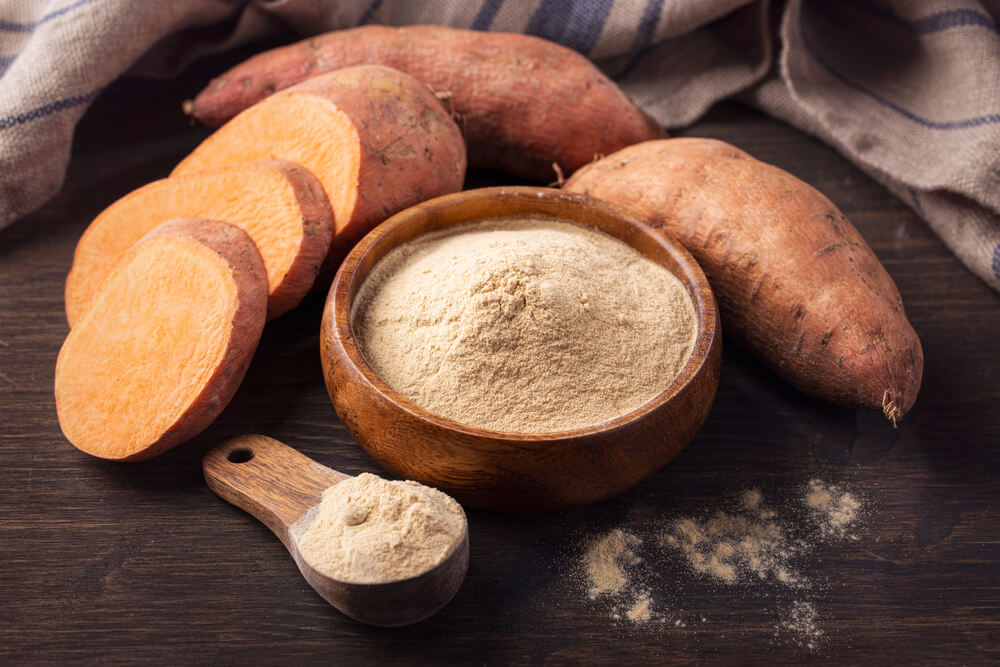
Recommended Potato Flour Substitute
1. Cornstarch
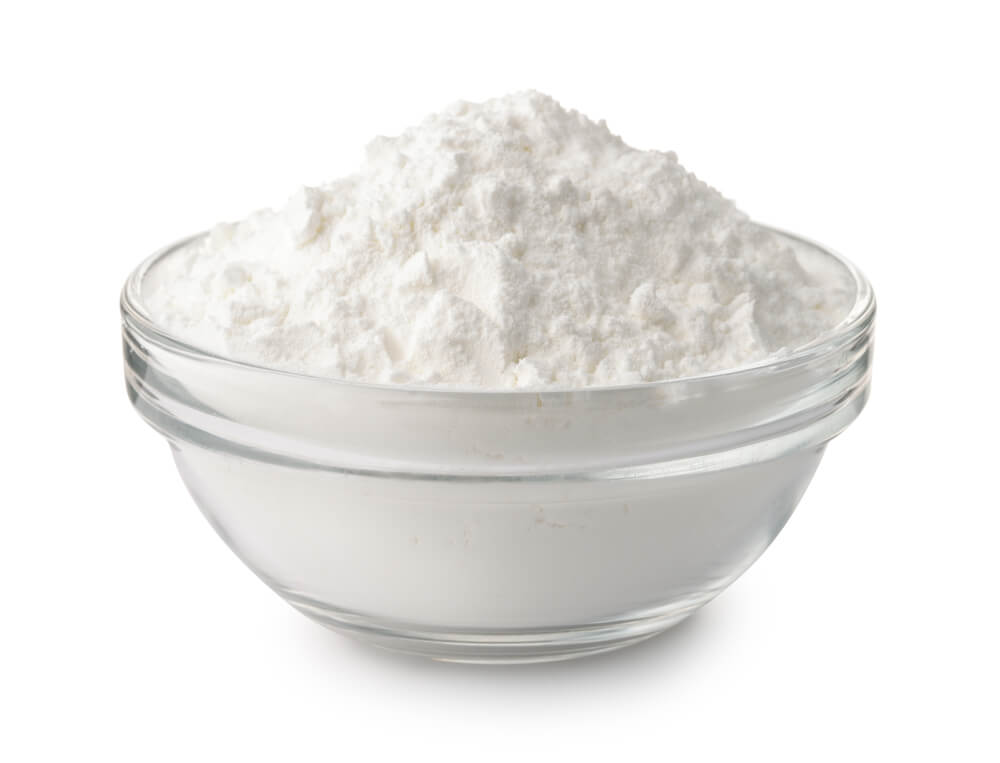
Corn starch is a great go-to potato flour substitute. Whether you are baking or making sauces, in most cases, corn starch will get the job done.
There are some downsides to using cornstarch instead of potato flour. The most notable of these is flavor. Potato flour maintains a lot of its original potato flavor. By contrast, cornstarch is relatively flavorless. Still, it is an effective substitute. As long as you are not too particular about the potato flour flavor, cornstarch is a fantastic alternative.
2. Quinoa Flour
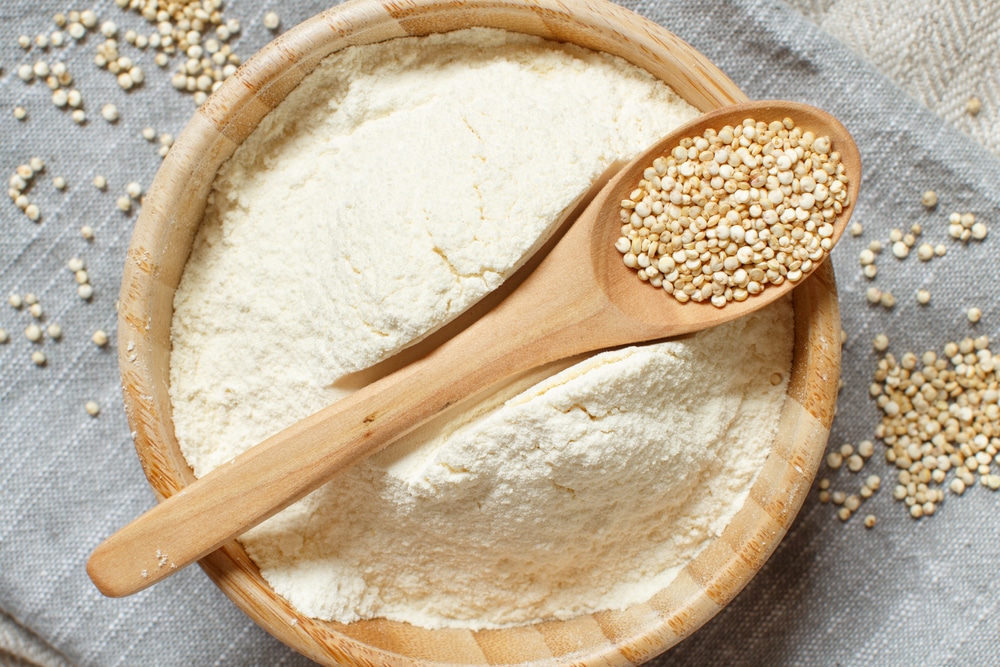
If you do any form of gluten-free baking, you probably already know about the benefits of quinoa flour. Quinoa flour is one of the top choices for those who are gluten-free because it requires no additional ingredients to function as a flour substitute.
Quinoa four consists of ground quinoa seeds. Along with the fact that this type of flour needs no additional additives, it is also quite versatile. You can use quinoa flour as a potato flour replacement for any of your general baking recipes.
3. Mashed Potatoes
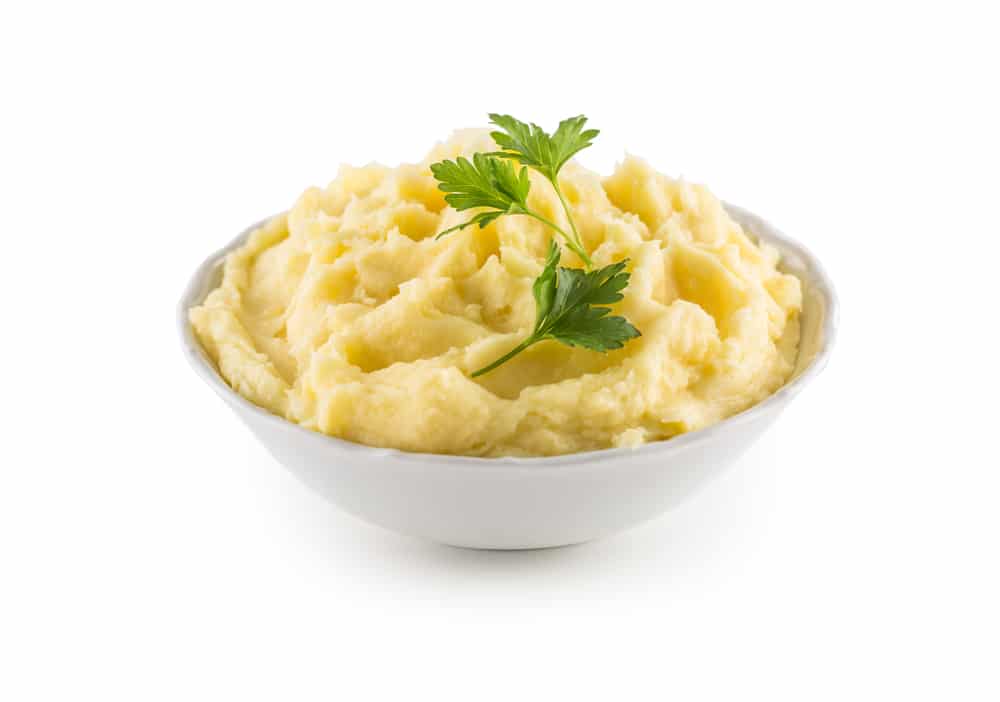
You may be surprised to find that you can use mashed potatoes as a potato flour alternative. But while this can seem odd, mashed potatoes are one of the best options. That is because mashed potatoes and potato flour share the same ingredients.
To see why mashed potatoes are such a good option, let’s understand the process of making potato flour. Potato flour consists of peeled potatoes. After peeling, the potatoes are cooked, dried, and ground to create potato flour.
When you think about it, mashed potatoes are not much different. The process involves peeling, cooking, and drying just like potato flour. That means that you can use mashed potatoes in your baking recipes.
The only difference is that mashed potatoes carry a bit more water than potato flour. That makes for baked goods that are slightly more moist. The resultant texture should be similar to what you would expect from potato flour.
4. Wheat Flour
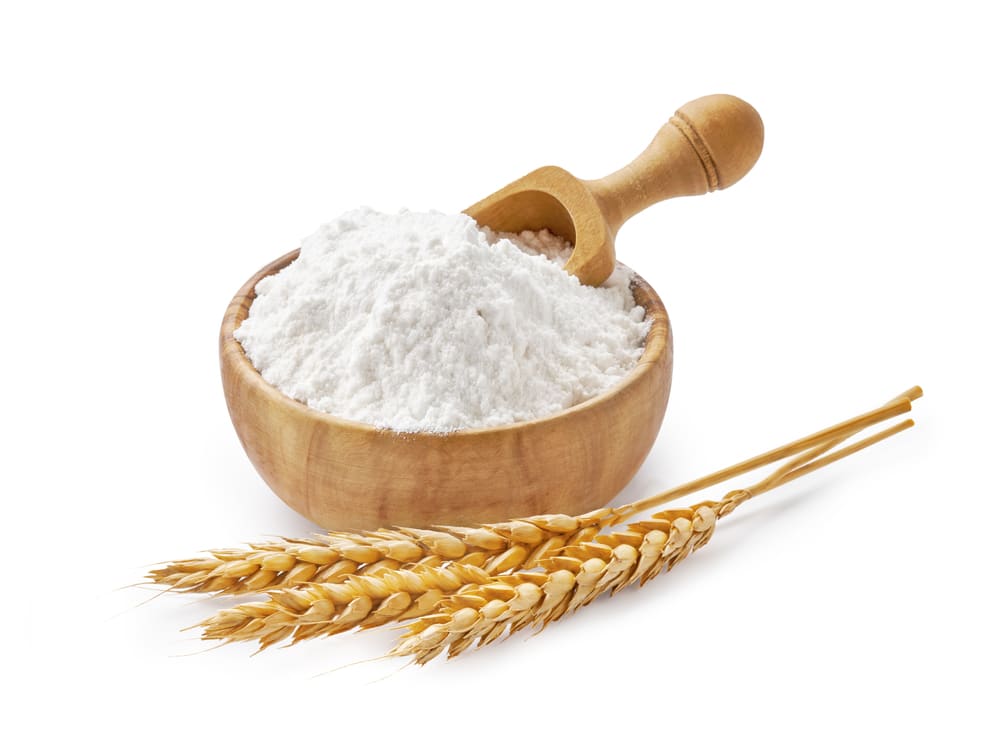
While not the best option, wheat flour is another viable potato flour substitution. But there are some significant differences in the qualities of wheat and potato flour.
Of course, wheat flour will not carry the same distinct potato flavor as potato flour. But it also retains less moisture when baking. Keep this in mind as you substitute wheat flour for potato flour. Make adjustments as needed to ensure that your baked goods have the best moisture when they are done baking.
5. Tapioca Flour
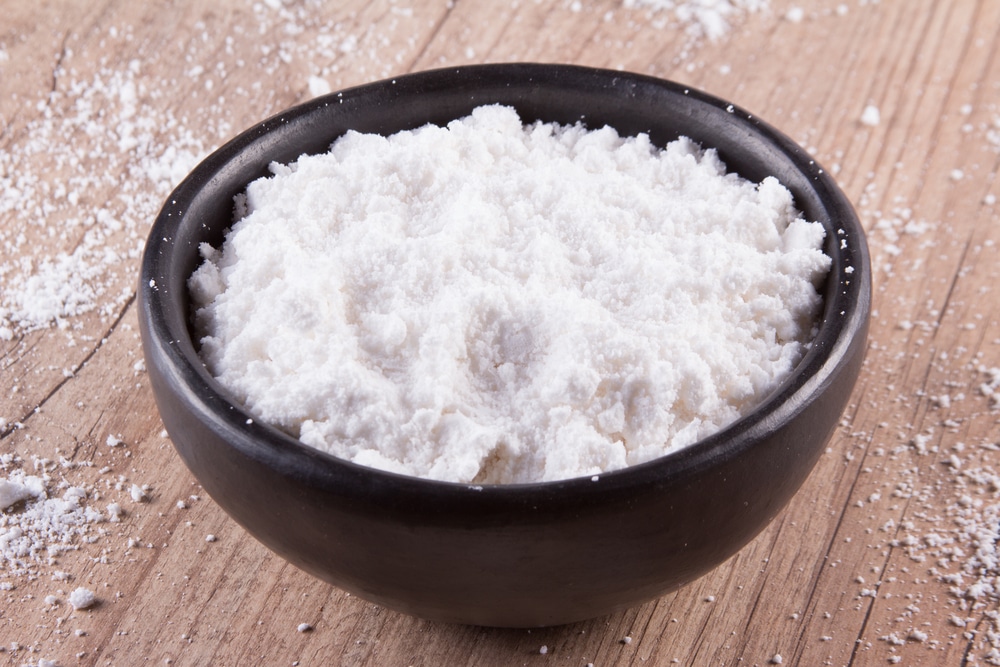
This is another option with which you cannot expect the same potato flavor offered by potato flour. Instead, tapioca flour has little to no taste at all. But that is not necessarily a problem when you consider the advantages of tapioca flour.
Tapioca flour is a gluten-free baking ingredient that is great for desserts and many other uses. To its credit, tapioca flour is known to produce an exceptional texture in baked goods. You may find that you have a preference for tapioca flour over potato flour when it comes to gluten-free baking.
6. Rice Flour
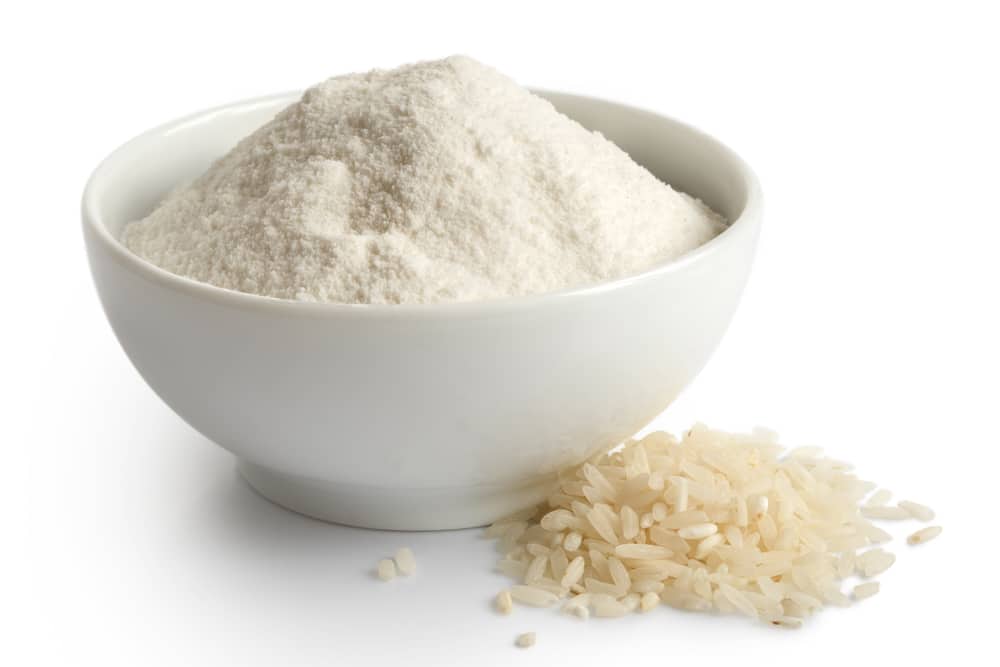
Making rice flour is a lot like the process of making potato flour. In this case, the sequence begins with raw rice. Then the rice is ground into a powder.
This creates an ingredient that serves as an optimal replacement for potato flour. Rice flour is also a suitable option for those sensitive to gluten. While rice technically contains some gluten, it does not typically cause the same problems that other grains would.
Interested in rice flour? Learn more below:
- How to use rice flour replacement
- The 5 most common substitutions for brown rice flour
- Sweet rice flour alternatives
7. Arrowroot
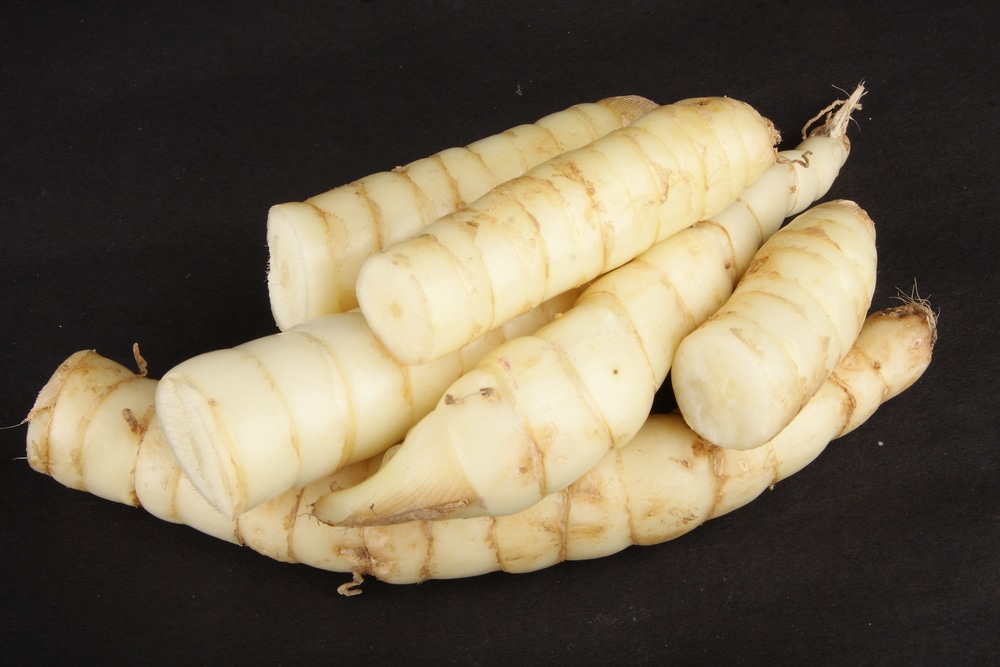
Arrowroot is another viable option when you cannot get your hands on potato flour. One of the reasons that this is such a good potato flour replacement is that both ingredients are gluten-free. Since the lack of gluten is one of the main selling points of potato flour, that makes arrowroot one of the best replacements.
You can use the same amount of arrowroot as you would potato flour when baking. But arrowroot is especially useful as a way to thicken sauces. However, unlike potato flour, arrowroot is tasteless.
What About Potato Starch?
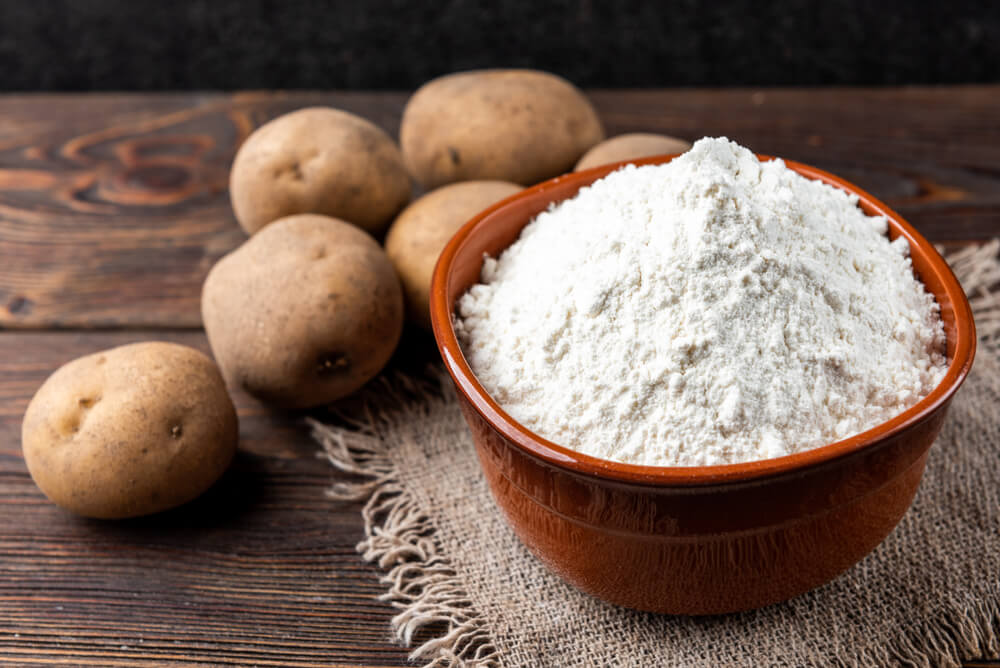
We have already mentioned the process of making potato flour. This involves using the majority of the potato to create the flour. So, how is potato starch different.
The first thing you should know is that, unlike potato flour, potato starch is not made of actual potatoes. Instead, it is the starch of the potato. Creating potato starch requires extracting the starch from the potatoes. That starch then dries to a powder.
That is the main difference between potato flour and potato starch. But you are probably still wondering if potato starch is a quality potato flour substitution. Well, in most cases, it is. With just a few slight alterations, you can use potato starch as a potato flour substitute when you bake.
Homemade Potato Flour
As long as you have some potatoes and some patience, you can make your own homemade potato flour. The only other piece of equipment you will need is a food dehydrator.
Start by peeling, cooking, and mashing your potatoes. Then let them sit in the food dehydrator for almost a full day. Then remove the potatoes and continue to crush them into a powder.
If you want to reduce your potatoes’ time in the dehydrator, you can blanch them first. This can effectively reduce the dehydration time by half.
This is, admittedly, a very involved process. But if you are desperate to use potato flour in your cooking, it may be your only option.
You might also be interested in: Best Oat Bran Substitution | Oat Bran vs Wheat Bran

